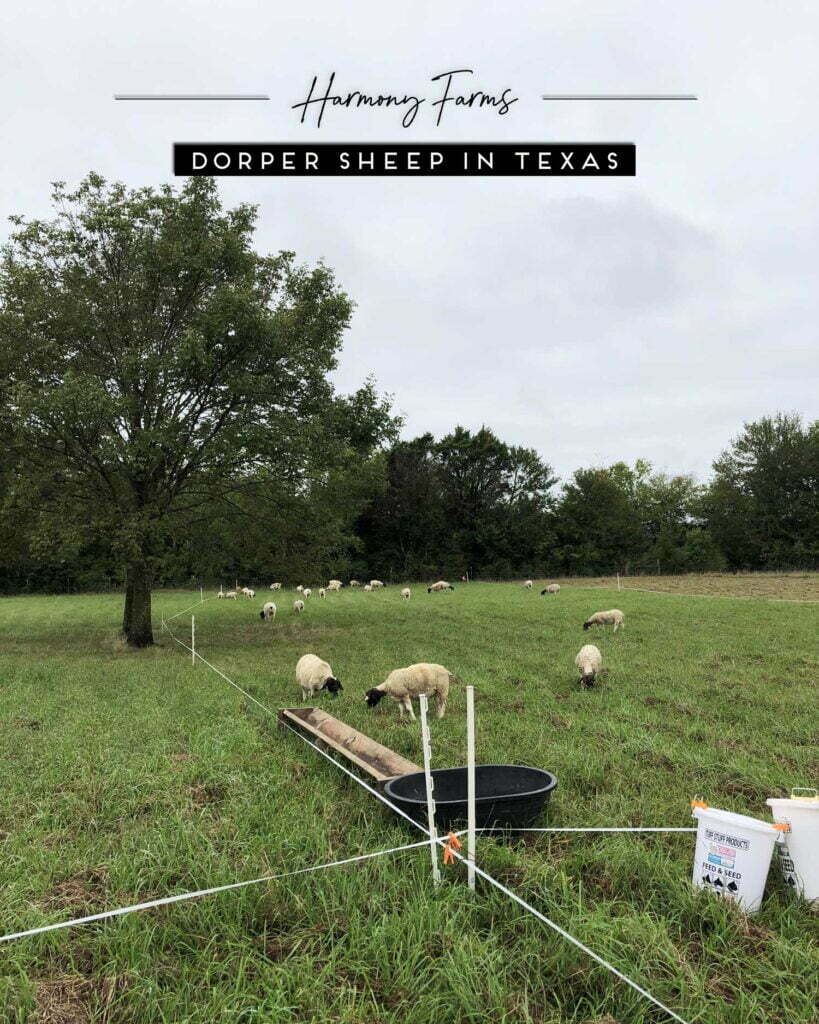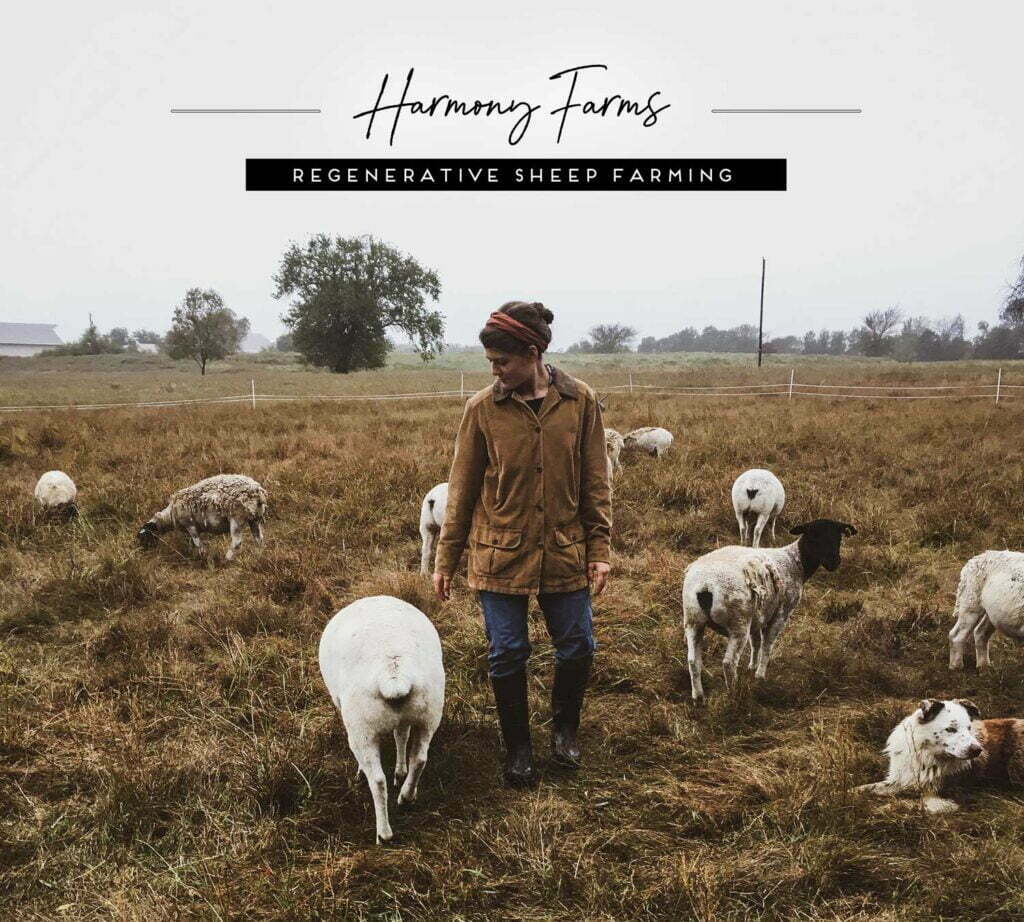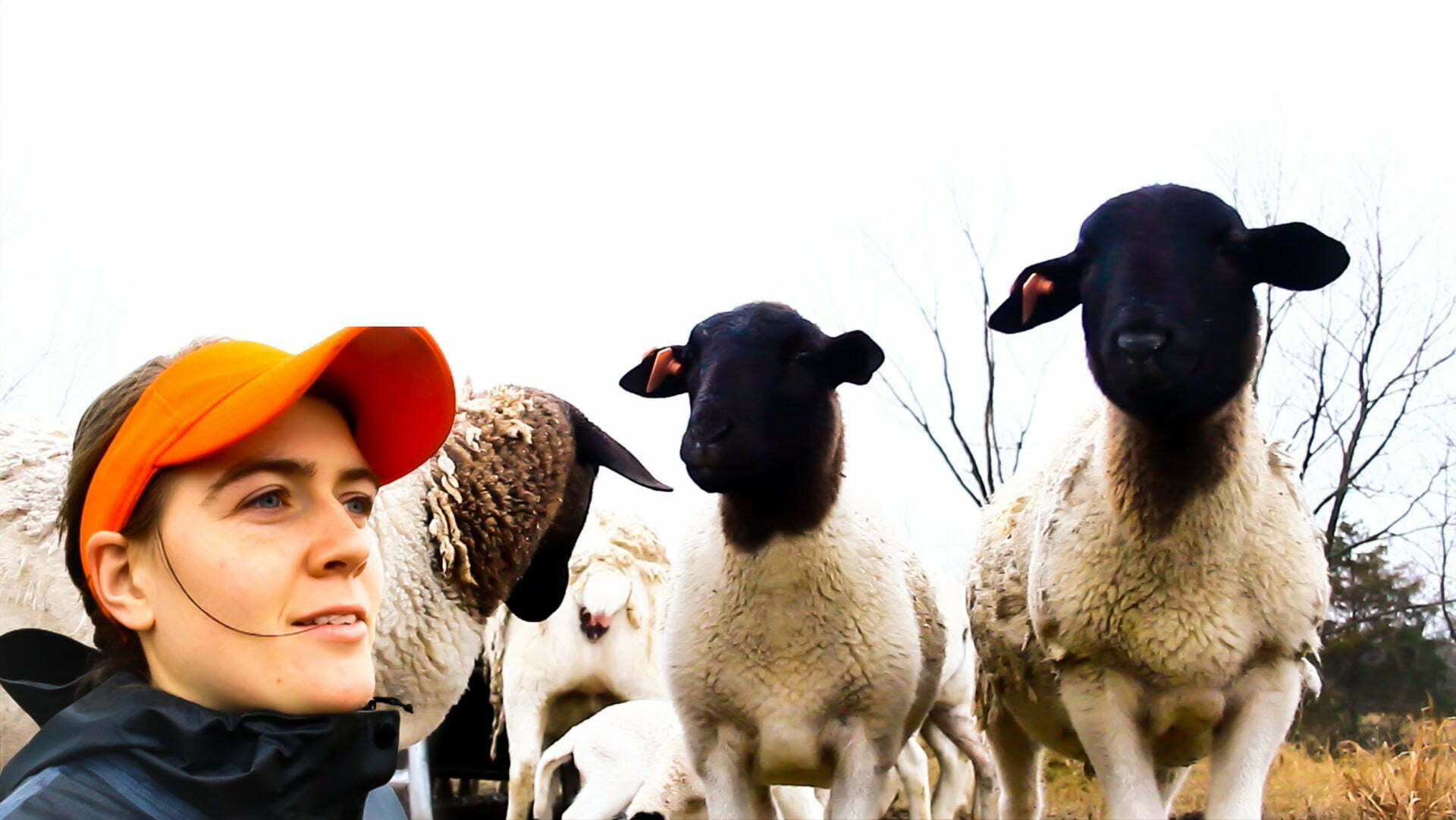Today we are talking about Dorper Sheep Characteristics! For 3 years, Harmony Farms has farmed a small flock of Dorper Sheep in East Texas. The Dorper sheep breed is a result of cross-breeding the Dorset Horn sheep with the Blackhead Persian Sheep. A primary characteristic of Dorper Sheep is their heat tolerance. The Dorper sheep breed is known for producing excellent quality meat in arid climates. Dorper sheep are a self-shedding sheep breed, meaning they do not require any manual shearing. With this post we are going to dive deeper into these Dorper sheep characteristics!
We purchased our small flock of Dorper Sheep 3 years ago. Harmony Farms is located in upper East Texas where rainfall is above national average. This climate is more moderate and balmy than the breed is intended for. For this reason, we must intensive rotational graze our Dorper Sheep during the rainy seasons in order to keep the parasite load down. With intensive rotational grazing management, our flock of Dorper sheep is thriving in East Texas!

Dorper sheep are a self-shedding, heat tolerant breed:
The Dorper Sheep is a result of cross breeding the Dorset Horn Sheep with the Blackhead Persian Sheep. The Blackhead Persian Sheep is a breed native to the arid regions of Somalia and South Africa. This side of their genetic pool gives the Dorper Sheep their wool-less heat tolerant characteristic.
The Dorset Horn Sheep is the other half of the Dorper’s genetic line and is a breed native to south-west England. The Dorper sheep is typically a polled breed, meaning they do not carry any of the horned characteristics from the Dorset side of their genetics. Dorper sheep do, however, grow a small amount of wool which is shed by the animal in warm seasons.
When shopping for a Dorper sheep you will often see it advertised that the particular animal is an “easy shed”. While Dorper Sheep are characteristically self-shedding, some animals shed better than others, while some retain a layer of wool on their backs. In our flock of 25 Dorper Ewes, we have about 2-4 that are not good at shedding their wool on their own. These ewes retain a bit of wool year round. If you are shopping for Dorper ewes or rams, it is a good idea to ask if they shed all on their own.

Dorper Sheep thrive in arid climates:
Characteristically, Dorper sheep thrive in hot dry climates. Dorper sheep are able to convert brushy forage (aka: pasture weeds) into excellent quality meat. If you are farming Dorper sheep in humid, wet regions you will need to have a serious parasite management strategy. Since we are farming Dorper sheep in a very wet and humid climate, our strategy involves intensive rotational grazing and the use of conventional dewormers.
Intensive rotational grazing is needful to manage parasites in nonarid climates:
Intensive rotational grazing is our primary contribution to the heath of our Dorper flock. Sheep are characteristically prone to contracting parasites. For this reason, one of your main enemies on a pasture-based system will be managing worms in your flock. With intensive rotational grazing, we move our flock to fresh pasture every 2 days. This moves them away from their manure and on to fresh grass before the parasite’s infectious cycle begins again. By rotational grazing our Dorper Sheep we have seen a significant reduction (but not complete elimination) in the need for chemical dewormers on our sheep farm.
In all, the Dorper sheep breed has a variety of appealing characteristics. They produce amazing meat on sub-par forage. Dorper sheep do not require the back-breaking shearing process that most other sheep breeds do. Dorper sheep are great for arid regions, but with intensive grazing management can also thrive in humid regions. Dorper sheep are also increasing in value, making them a great investment!
-The Shepherdess at Harmony Farms
“The grass withereth, the flower fadeth: but the word of our God shall stand for ever.” Isaiah 40:8

I have a question do Dorper sheep jump like goats do I have a real problem with small goats especially jumping on cars if I have them up front in pasture we’re I park wondering if they do the same?
They do jump sometimes, but (in my experience) not nearly as bad as goats!